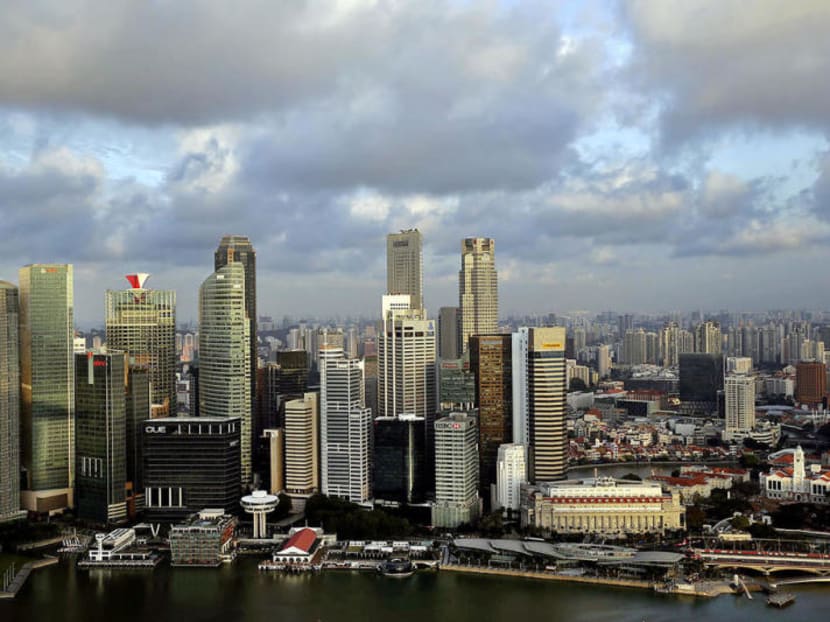Pay freeze, cuts a signal but firms jumping on bandwagon could lead to ‘self-fulfilling recession’: Economists
SINGAPORE — The recent pay cuts by Singapore's political leaders and top management of some of the city-state's biggest companies are a signal to the public that the economy may be dragged down further if the Covid-19 outbreak becomes protracted, and that they should brace themselves for the worst, analysts said.

With the economy already hit hard by the outbreak, economists are saying that the wage cuts are signalling that there is a need for more caution among companies or individuals when they spend.
SINGAPORE — The recent pay cuts by Singapore's political leaders and top management of some of the city-state's biggest companies are a signal to the public that the economy may be dragged down further if the Covid-19 outbreak becomes protracted, and that they should brace themselves for the worst, analysts said.
However, the analysts said that companies should not follow suit recklessly, as doing so may cause the ripple effect of people cutting back on spending, which will lead to a “self-fulfilling recession”.
Already, retailers and food and beverage outlets have reported a slump in their business after the Covid-19 outbreak, with some dropping by as much as 80 per cent.
On Friday (Feb 28), Deputy Prime Minister Heng Swee Keat announced that President Halimah Yacob, all ministers and other political office holders, as well as Members of Parliament, will take a one-month pay cut to show their solidarity with Singaporeans amid the virus outbreak.
Earlier, several companies have announced that its senior management would be freezing their salaries, like state investor Temasek, or taking a 5 to 15 per cent pay cut, such as Singapore Airlines, CapitaLand, as well as SMRT.
‘RESPONSIBLE THING’ TO CUT PAY
With the economy already hit hard by the outbreak, economists are saying that the wage cuts are signalling that there is a need for more caution among companies or individuals when they spend.
The Trade and Industry Ministry has already downgraded Singapore’s growth forecast for 2020, from the initial projection of between 0.5 and 2.5 per cent, to -0.5 and 1.5 per cent, indicating that a recession is a possibility.
CIMB economist Song Seng Wun said the wage cuts have been imposed on senior management of companies that have been affected by a sharp drop in business and tourist arrivals, as well as domestic consumer spending.
“It’s about saving jobs first against the backdrop of a more challenging macro environment,” said Mr Song.
Globally, large multinational companies such as Microsoft and Apple are already saying that they will not meet their expected quarterly earnings due to the impact of the Covid-19 outbreak.
There are also growing concerns that the Covid-19 situation may last longer than expected as there is an escalation in the number of new cases outside of China, which is where the virus originated from, analysts said.
DBS Bank economist Irvin Seah said the pay cuts taken by these companies’ senior management and Singapore’s political leaders are a “responsible thing to do”.
“I don’t expect senior management to resort to headcount reduction before taking the cuts in their compensation. It is responsible for them to take the first step in this belt-tightening exercise before we resort to more drastic measures, such as retrenchment,” said Mr Seah.
As for the action taken by the political leaders, Mr Seah said: “It’s about setting a good example… Instead of just merely rolling out support packages (during the Budget) and then leaving it as it is.”
Mr Song made a similar point, saying that pay cuts are “politically important” as the Government has to be seen as connected with the ground.
AVOID A ‘SELF-FULFILLING RECESSION’
However, the head of treasury and research at OCBC Bank Selena Ling cautioned against a “monkey see, monkey do” situation, where companies that are not greatly impacted by the virus situation also embark on cost-cutting measures.
This may lead to a “self-fulfilling recession”, she said, as she warned of a vicious circle resulting from this.
“It doesn’t make sense for everyone to cut across the board. If everyone cuts, people will cut spending as well,” Ms Ling said.
“If people tighten their belts and spend less, this will hurt consumption and may cause more companies to do more cost-cutting as well.
“If, let’s say, the Covid-19 impact is more protracted and severe, then the next step is ‘wages alone is not sufficient, let’s cut manpower.’ That’s how the rationalisation may play out. Hopefully it won’t go down that road.”
Mr Song agrees, pointing out that sectors such as information and communications technology are not as badly affected by the outbreak as hospitality and retail.
“Not everybody needs to cut. But if everybody cuts and stops spending, there will be a knock-on effect and drag on growth,” said Mr Song.
Join our Telegram channel to get TODAY's top stories on mobile:

However, he added that the several support measures unveiled during Budget 2020 may help buffer some of these effects as money is being put into the hands of consumers and households.
Mr Heng announced two packages worth a total of S$5.6 billion for businesses and households to help them through this crisis during Budget 2020.
Mr Seah believes that Singaporeans are aware of the economic impact of the Covid-19 situation and are prepared for things taking a turn for the worse.
“Everyone is just keeping their fingers crossed, preparing for the worst and hoping for the best,” he said.








